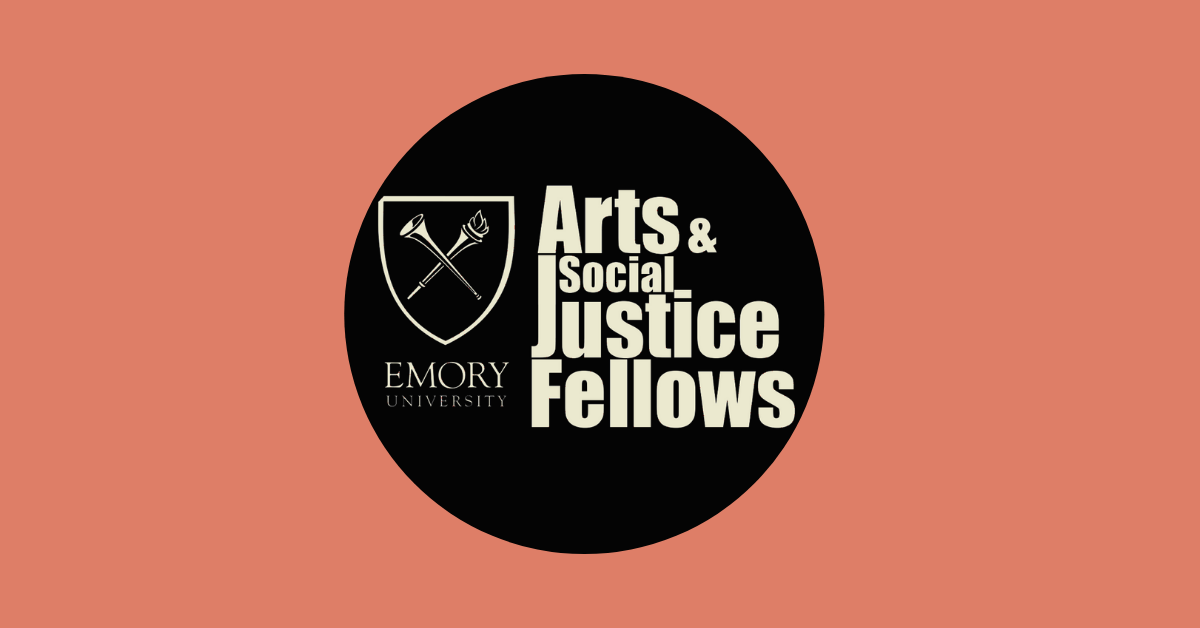The Emory Center for Digital Scholarship (ECDS) is honored to have aided the launch of the Arts & Social Justice Fellows Program at Emory University. The program is, as explained on their website, a partnership between the Emory College of Arts & Sciences, Arts at Emory, and the Emory University Center for Ethics. Dr. Kayla Shipp, Digital Scholarship Specialist at ECDS, worked with the program team to create the website. To learn more about the Arts & Social Justice program, please visit the website and check out the latest Emory University news feature, linked below:
- Arts & Social Justice Fellows: https://www.emoryasj.org/
- Emory University news feature: https://news.emory.edu/features/2021/01/arts-and-social-justice/index.html
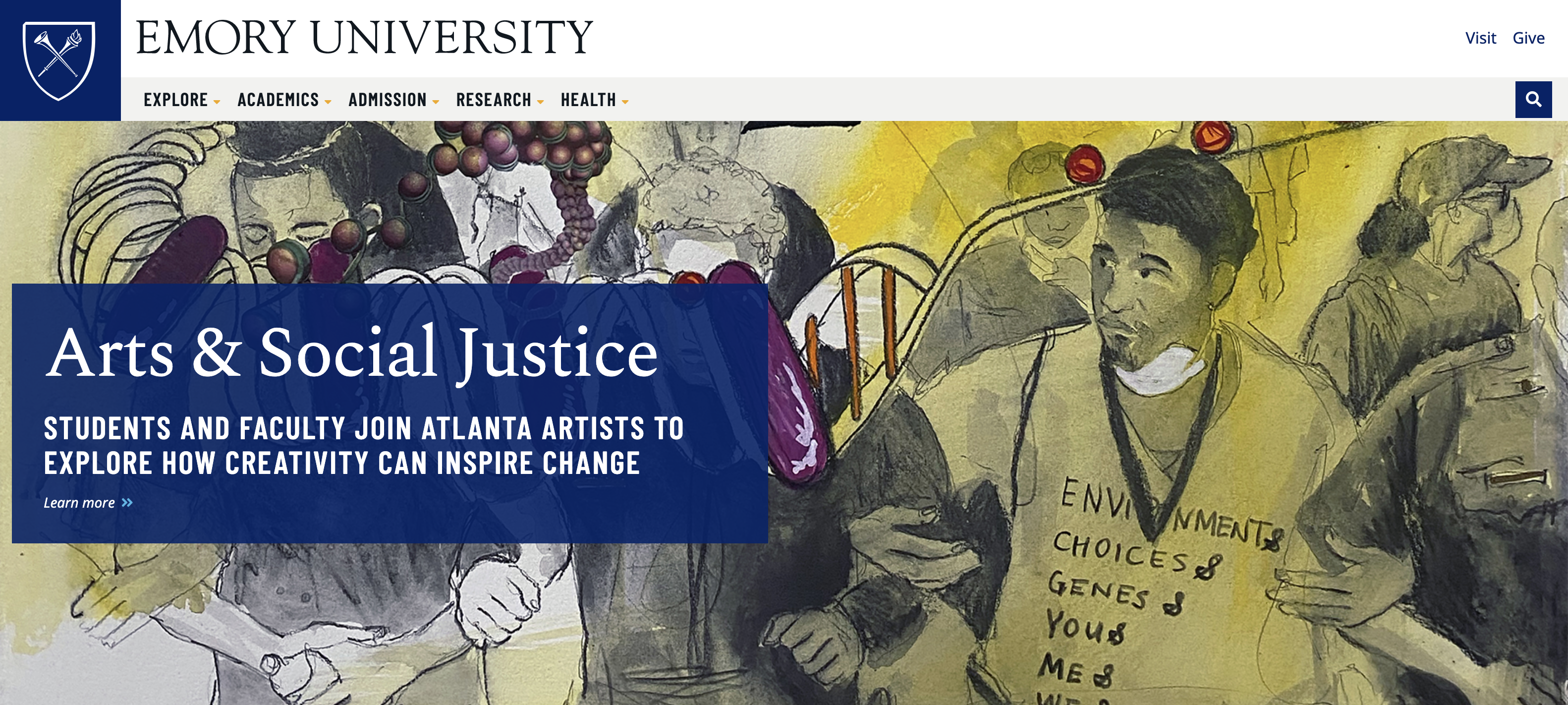
The Arts & Social Justice Fellows (ASJ) program arose in the fall of 2020, amid a “groundswell of national attention to racial and social injustice” that led Emory professors and students to join with Atlanta artists to “explore how creative thinking and artistic expression can inspire change.” As a partnership between the Emory College Center for Creativity & Arts (CCA) and the Ethics and the Arts program of the Emory University Center for Ethics, the Arts and Social Justice Fellowship was envisioned as an opportunity for faculty members to work alongside partnered ASJ Fellows to embed creative projects that reflect on social inequities into existing courses. Faculty members from the 2020 cohort included professors across four units at Emory University, including Emory College, Oxford College, the Rollins School of Public Health, and the Goizueta Business School.
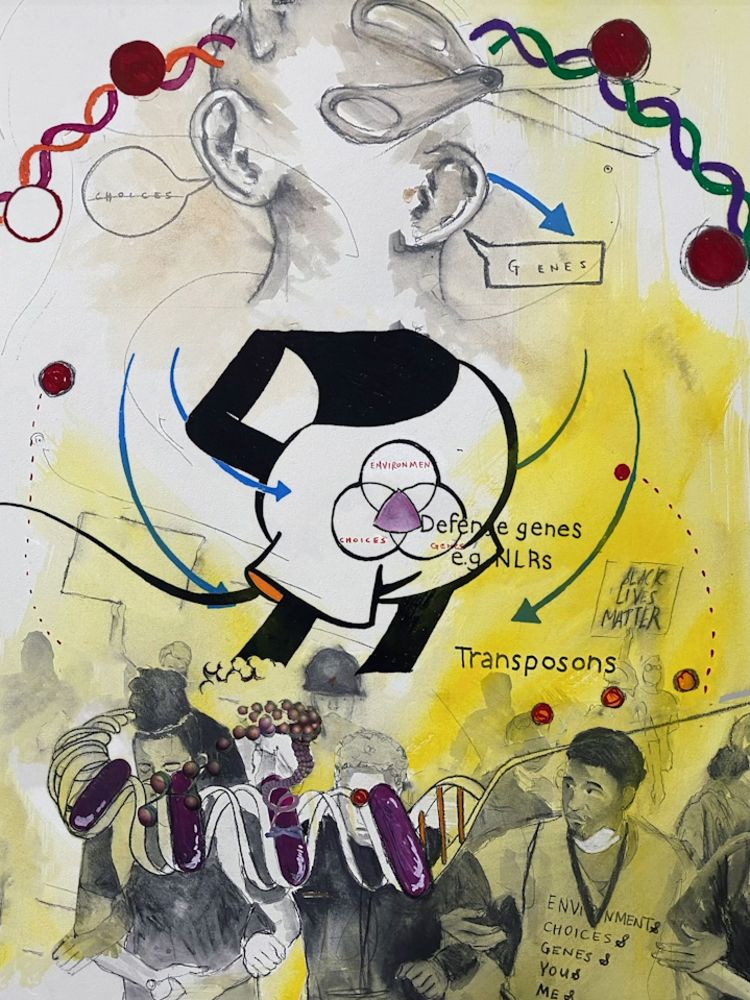
The 2020 Arts and Social Justice fellows represent a cross-section of Atlanta’s most dynamic creative thinkers. Out of a pool of over 70 applicants, six artists were selected as the inaugural cohort in recognition of their artistic accomplishment and commitment to advancing racial and social justice: Ash Nash, Shanequa Gay, Okorie Johnson, Fahamu Pecou, Garrett Turner, and Olivia Dawson. (Learn more about each fellow on the ASJ website.) Dr. Carlton Mackey, co-creator of the Arts and Social Justice Fellows program and director of the Ethics and the Arts program, explains: “Bringing these artists together with a group of scholars representing the undergraduate and professional schools offers critical nuance to the public dialogue about these issues and prepares college students to face them with courage and compassion in the real world.”


Each month throughout the Fall 2020 semester, the full cohort of seven faculty members, six ASJ Fellows and their students gathered to learn about each other’s work, and to exchange ideas across the university about the arts and social justice. The semester concluded with a public unveiling and citywide conversation to consider collectively the completed projects and the questions they raised. These projects included: Epigenetics and the Human Condition; Film, Media, and the Art of Social Change; Georgia Civil Rights Cold Cases; Prevention of Mental and Behavioral Disorders; Social Justice: Zoning, Contracts, and Environmental Racism; and The Feminist Art(s) of Activism.
Kevin Karnes, co-director of the program and Associate Dean for the Arts, emphasized the importance of having the ASJ website as a virtual space to showcase these projects. In a time “when we cannot run screenings at Emory or display the art in the [Robert W. Woodruff] library’s Schatten Gallery, the website gives us a space to share the works created with the broader world,” he explained. You can view each course project video, accompanied by short descriptions, on the ASJ projects page.
ECDS Digital Scholarship Specialist Kayla Shipp helped build the website alongside an ASJ project team that included Karnes, Mackey, Emma Yarbrough (Communications Manager for CCA), and Jacquelyn Pritz (Arts Administrative Associate at CCA). Shipp has previously created websites for such Emory initiatives as the Fellowships in Research and Science Teaching (FIRST) program, the open-access academic journal nonsite, and more. Shipp was “thrilled to partner with the Arts & Justice team to help tell the story of ASJ through its art and people. We wanted the digital exhibit space itself to evoke the sense of creative community that has been so central to the program.”
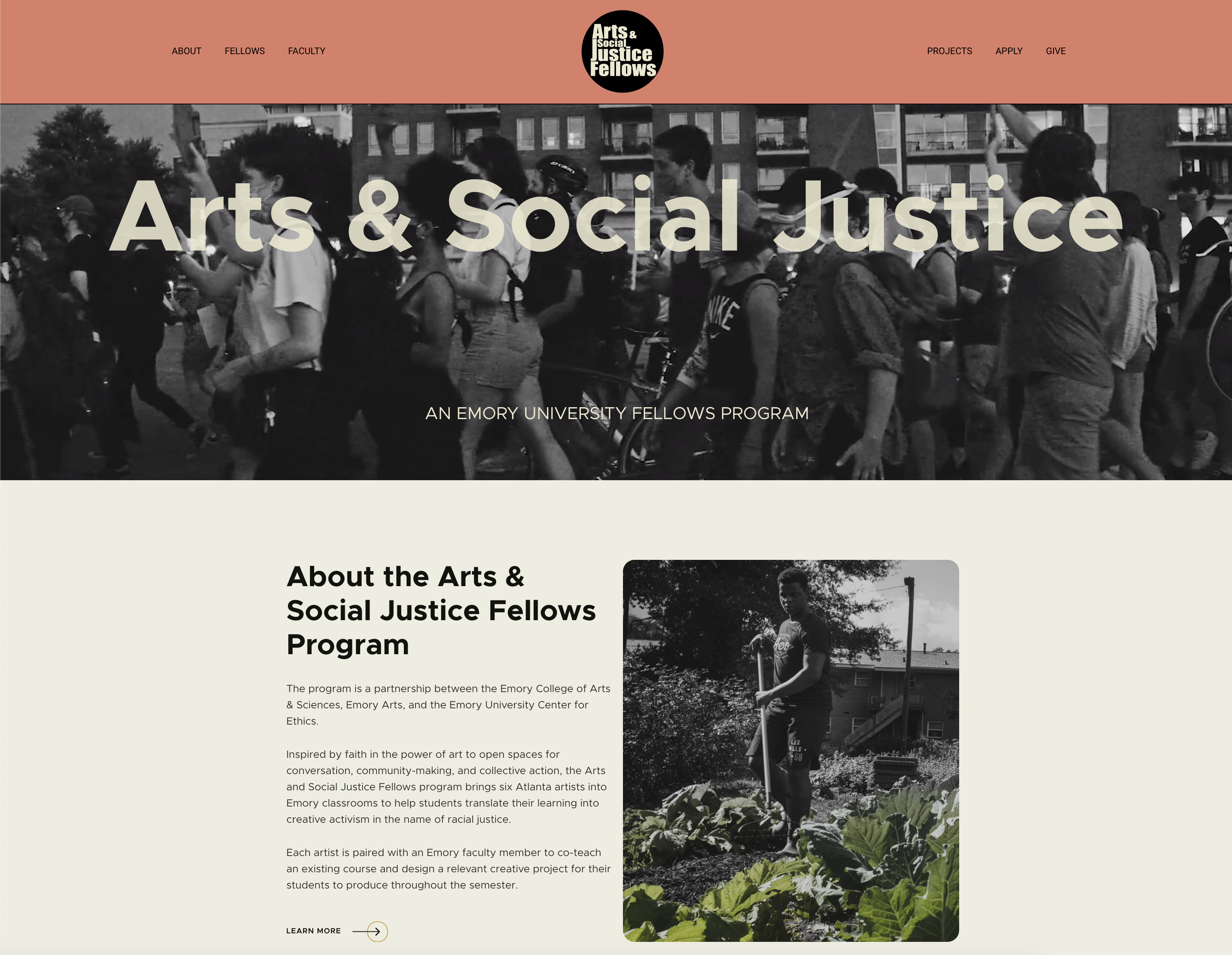
Karnes explains that working with ECDS on the website was “a total dream” and that Kayla was “awesome both as a designer and a project manager. That everything came together so quickly was a shock, and everyone who has looked at the website says that it looks amazing.” Pritz adds that working with Kayla was incredibly helpful, as she “was good at providing options and narrowing focus,” allowing the project team to achieve their aims for their website in an efficient manner.
The project team also consulted with ECDS Digital Project Specialist Adam P. Newman on how to ensure accessibility for the program’s website and media. Newman met with Jacquelyn Pritz and Emma Yarbrough on captioning for audiovisual (AV) content, which not only makes the site more accessible to users with disabilities, but also enables the videos to be included in ECDS’s instance of Aviary, an exciting AV platform that leverages captions and transcripts to make media fully searchable. You can search through the Arts and Social Justice videos on Aviary at: https://emory.aviaryplatform.com/collections/1255
Moving forward, the program hopes to become a year-round opportunity. Faculty and artist applications for the 2021 Arts & Social Justice Fellowship will open in late spring of 2021. In the meantime, the ASJ fellowship program hopes to keep the conversations going, moving forward with the important discussions that were inspired by the art and dialogue from their inaugural program.
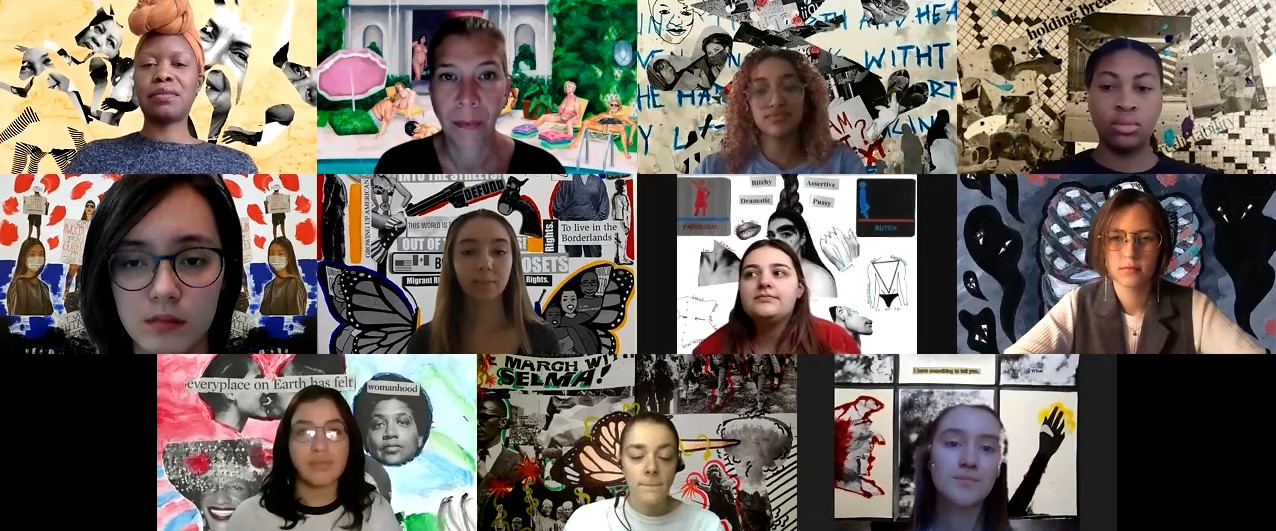
If you would like to support the Arts & Social Justice Fellows Program, you can make a donation online, by mail, or by phone; see website for details: https://www.emoryasj.org/give/
